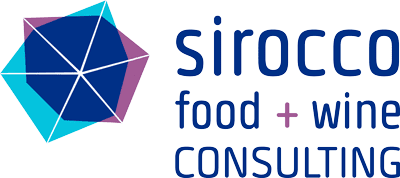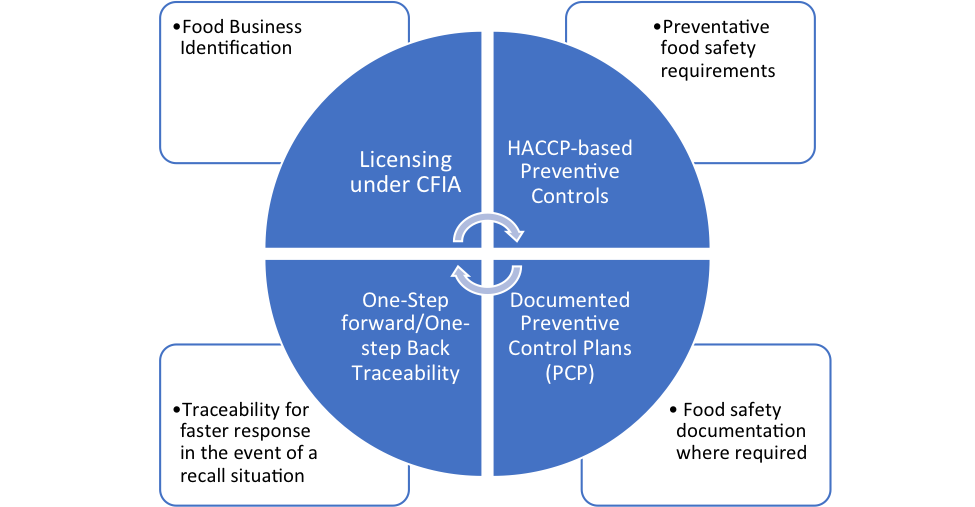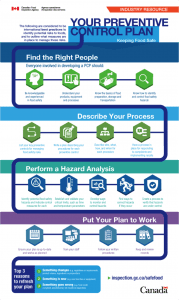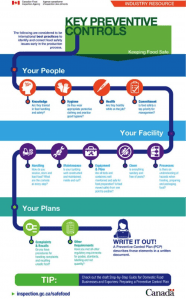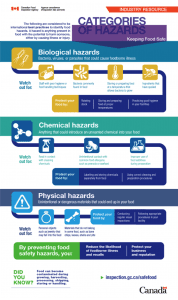UPDATE: It was just announced that the Safe Food for Canadians Regulations will come into force on January 15, 2019. Are you up-to-date on the new Canadian Food Safety regulations?
SFCR – OVERVIEW
Preventive Controls and Preventive Control Plan (PCP)
Under the proposed regulations, food companies would be expected to determine and control potential hazards and contamination risks to foods by implementing preventive controls. Contamination risks may be avoided by maintaining sanitary conditions, which are defined under the SFCR as “conditions or circumstances that do not present a risk of contamination of a food.” A Food Safety Hazard is defined as “a biological, chemical or physical contaminant that has the potential to cause illness or injury to humans when present.”
Preventive controls would apply to imported food, food prepared for export or food sold across provinces. Regulations would also target businesses which store and handle any meat product in its imported condition for inspection by the Canadian Food Inspection Agency.
Record-keeping is another requirement under SFCR that requires food and beverage businesses to maintain a preventive control plan (PCP). The PCP is a written document that outlines how food hazards and risks to food are identified and controlled. Exporters of food other than meat or fish producers, that do not require an export certificate, are exempt from this requirement, so are small businesses with $30,000 or less in gross annual food sales. Although exempt, they would, however, be required to develop preventive controls to ensure food safety.
The PCP must be prepared and implemented according to sections 84 to 87 of the proposed Safe Food for Canadians Regulations. As a result, the plan may also include other elements, where applicable such as food packaging, labelling, grades and standards of identity requirements. Once the Safe Food for Canadians Act comes into force, the compliance timeline for the regulatory requirements will follow a multi-phase approach with the federally registered food sector having to abide by the regulations immediately, followed by the fresh fruit and vegetable sector and ending with the non-federally registered food sector.
Licensing
Under the proposed SFCR, most food businesses would require a licence to
- import food;
- manufacture, process, treat, preserve, grade, package, or label food to be exported or sold across provinces;
- export food that requires an export certificate – even if not preparing the food;
- slaughter food animals where the meat product is to be exported or to be sold across provinces;
- store and handle a meat product in its imported condition for inspection by the Canadian Food Inspection Agency (CFIA).
Businesses may apply for a license by signing up for a My CFIA account. The new CFIA portal will allow food businesses to access various online services including acquiring and renewing one or more licenses.
Traceability
Traceability is one of the key elements of the proposed Regulations. Internal traceability would require food businesses to trace their products one step forward (to the customer) and one step back (to the supplier). The requirements would not apply to restaurants and other similar businesses.
Under the proposed SFCR, new traceability requirements would apply to most food businesses that
- import food;
- manufacture, process, treat, preserve, grade, store, package or label food to be exported or sold across provinces;
- grow and harvest fresh fruits and vegetables to be exported or sold across provinces;
- slaughter food animals where the meat product is exported or sold across provinces;
- store and handle a meat product in its imported condition for inspection by the Canadian Food Inspection Agency (CFIA); or
- sell food at retail, which would need to be traced one step back but not forward to the consumer.
Importing and exporting food
Importers and their foreign suppliers would be expected to meet domestic food safety requirements. For exporters, food would need to meet both Canadian standards for food safety and the standards of the importing country (if applicable). Refer to the infographics in the learning aids section for more details.
Learning aids
The CFIA is providing various tools and learning aids to clarify the SFCR requirements. The list includes:
- Interactive tools Would you need a licence?; Would you need a Preventive Control Plan?; What would your traceability requirements be?
- Infographics including information related to:
- An online portal (“my CFIA”)
- Videos
- Draft Preventive Control Plan Templates
- A Draft Step-by-Step Guide for Domestic Food Businesses and Exporters Preparing a Preventive Control Plan.
- A Draft Guide for Preparing a Preventive Control Plan – For Importers
